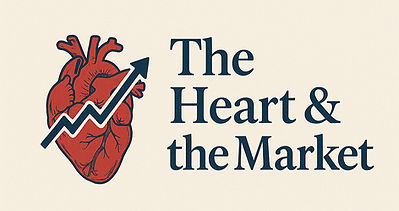Financial Nihilism: The Gospel According to WallStreetBets
- aaroncosner
- Sep 23, 2025
- 2 min read
CNBC’s recent article on young individuals involved in cryptocurrency, meme stocks, and options trading offers more than just an eccentric glimpse into internet culture. Beneath the memes and rocket emojis lies a more somber reality: what economists are referring to as financial nihilism. When the system appears biased and the future uncertain, some may choose to stake everything on high-risk ventures. After all, if nothing holds significance, nothing is truly lost.
That mindset isn’t only about money. It’s also about meaning. When an entire generation comes of age doubting whether homeownership, stable careers, or retirement are even within reach, the temptation is to convert despair into irony. Where do we see this? In meme-stock mantras like “YOLO”. This becomes a substitute gospel: the promise of satisfaction through volatility, a shot at glory in a market that otherwise feels indifferent to your dreams. It’s less about financial gain and more about chasing vitality. Risk as “proof that you still have some agency.”
Scripture tells a different story. The market may run on fear and short-term gratification, but the heart runs on the longing for the eternal, the transcendent. “Above all else, guard your heart, for everything you do flows from it” (Proverbs 4:23). The nihilistic wager says nothing matters. The biblical vision says everything does. That includes our money, our risks, and our future.
Here’s the contrast. Financial nihilism tells us to spend recklessly because tomorrow is uncertain. Christian hope teaches us to live intentionally because tomorrow is secure in God’s hands. Risk doesn’t have to mean rebellion against the system; it can mean faithfulness in the face of uncertainty. Investing, saving, or even waiting patiently—these may look boring compared to meme-fueled moonshots, but they are practices of trust. They acknowledge that our value doesn’t hang on sudden gains or dramatic losses, but on the steady reality of God’s provision.
High-risk trades may feel like rebellion against a broken economy, but even if you make the right ones, you’ll still wonder, in the end, what it’s all for. The gospel reframes the question: not “How much can I win?” but “How can I steward what I have in light of eternity?” Stewardship is not passive—it is active care for what’s been entrusted to us, an act of worship as much as of prudence. It turns volatility and despair into vigilance and dependence on the One who holds the future.
The mentality of financial nihilism is not, and never will be, a winning strategy: it’s a shrug at life’s fragility disguised as bravado. But the gospel offers a sturdier foundation than that moonshot meme-stock you’re thinking of buying—one that no market crash can shake.






Comments